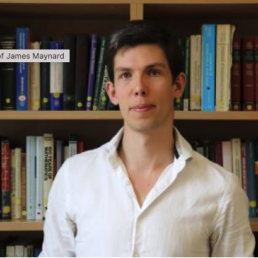Statistics' Florence Nightingale Lecture
Title: “Causal learning from observational data”
Please register in advance using the online form: https://www.stats.ox.ac.uk/events/florence-nightingale-lecture-2023
Marloes Henriette Maathuis is a Dutch statistician known for her work on causal inference using graphical models, particularly in high-dimensional data from applications in biology and epidemiology. She is a professor of statistics at ETH Zurich in Switzerland.
Abstract
I will discuss a line of work on estimating causal effects from observational data. In the first part of the talk, I will discuss identification and estimation of causal effects when the underlying causal graph is known, using adjustment. In the second part, I will discuss what one can do when the causal graph is unknown. Throughout, examples will be used to illustrate the concepts and no background in causality is assumed.


